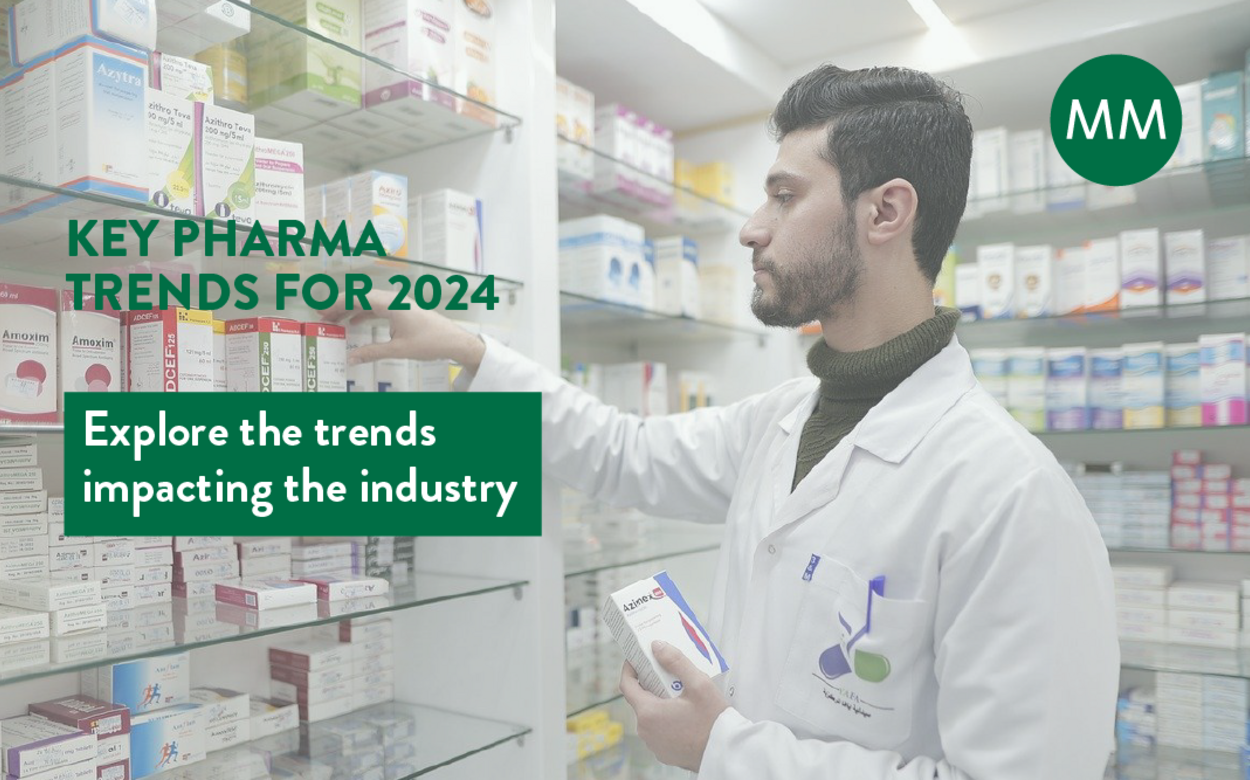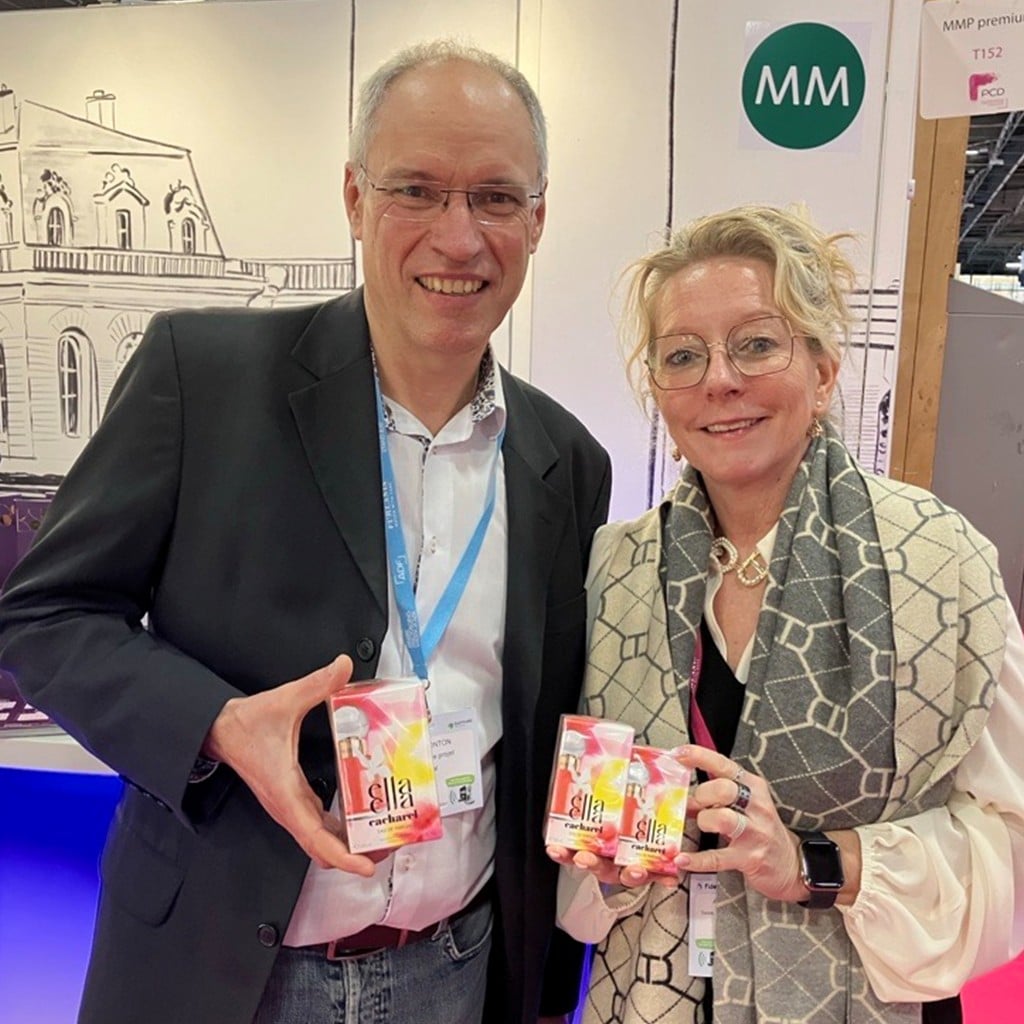Diving into key pharma trends for 2024
2024 is set to be a year of change in the pharmaceutical industry. As healthcare and retail markets develop, businesses along the pharmaceutical supply chain must stay agile and be able to meet current and future demands.

In this blog, we explore the key trends impacting the pharma industry in 2024, how these are set to shape the future of pharma secondary packaging design, and why MM Packaging is ideally positioned to meet the evolving needs of the sector.
1. Personalised medicines transforming treatments
The rise of personalised medicine marks an important shift in the treatment of illness and disease. The health and medical scientific community is making progress in tailoring pharmaceutical therapies to suit individual patient needs, based on factors such as genetics and lifestyle. This innovative approach has the potential to revolutionise disease treatment and improve patient outcomes.
The move away from ‘one-size-fits-all’ health solutions is accelerating and supply chain technology needs to be incredibly agile to make this a reality. As this trend evolves, smaller production batches, shorter lead times, and increased reliance on digital technology for traceability and security will be required.
To accommodate smaller batch runs and improve turnaround speed, pharmaceutical packaging must also adapt and streamlined supply chains become paramount. At MM Packaging, we support pharma customers in streamlining their operations by providing value-adding services that remove complexity from the pharma packaging supply chain. In addition to digital printing with the agility to support customers with variable elements such as coding and serialisation, these include examples such as ComboPack, a supply chain service that adheres a secondary packaging material to a folding carton pack at the point of production, and PiggyBack®, a leaflet combination solution that comprises two or three folded leaflets glued together back-to-back, to provide more space for information or larger text without increasing the leaflet’s footprint.
2. Digital patient engagement
In all aspects of business, virtual customer engagement is becoming the norm, and as much as 70%1 of customer engagement is now online. The rise of digital pharma, where patients can consult healthcare professionals or access their prescriptions in just a few clicks is now a reality.
Digitalisation is pushing the pharmaceutical sector towards omnichannel approaches, where real-world facilities are now combined with digital platforms. For pharma organisations, the pressure is on to create a seamless system for patients who prefer to use digital pharmacy services. This also improves accessibility for patients that cannot easily visit brick-and-mortar premises for their prescriptions.
In packaging terms, digital pharma puts a stronger focus on traceability and authenticity, as supply chains can look very different. Products are often stored in higher quantities and inventories tend to move quickly. A way in which packaging is rising to this challenge is through integrated smart technologies.
Tracking each individual pack can be made simple with smart technologies such as RFID (Radio Frequency Identification) and NFC (Near-Field Communication). These high-tech additions to packaging can turn individual packs into data points, which can be automatically tracked through the supply chain and monitored for additional data collection such as handling touchpoints, temperatures, and time in cold chain storage.
Further downstream, collected data can be used to measure and monitor patient adherence. At MM Packaging, we offer a wide range of digital-ready smart packaging technologies, which combine seamlessly with our secondary packaging solutions.
3. Decision-making moving to patients
A new generation of pharmaceutical decision-makers is wielding greater influence in drug purchasing decisions, demanding manufacturers provide transparency with clinical data and solid reasoning for price increases. From the rise of digital pharmacies to growth in generics, from budget cutting by large government health organisations to shifts in the retail pharmacy market around the world, the old commercial rules are becoming obsolete as procurement demands increase.
MM Packaging recognises the need for pharma companies to adapt. They need to streamline operations, minimise supply chain costs and boost efficiency to be able to meet the needs of these new market players. Innovative folding cartons, leaflet and label designs combined with services such as pre-serialisation and serialisation enable today’s pharma suppliers to be agile and transparent in their dealings, as well as support any evolving environment, social and governance (ESG) requirements.
4. Redesigning pharma commercial models
As costs rise across the board, many manufacturers in the pharmaceutical supply chain are redesigning the core commercial pillars of product development, cost control and securing profitable reimbursement, along with securing faster market adoption.
Packaging plays a key role in pharma supply chain efficiency, patient satisfaction and cost control, therefore the earlier the packaging design process is addressed in the drug development process i.e. at the laboratory stage, the more efficient the commercialisation process can become providing much-needed speed to market, agility and faster customer adoption. Product range expansion and SKU proliferation also becomes significantly easier to deliver.
At MM Packaging, we emphasise the power of collaboration from the outset, to ensure our packaging designs are always meeting the evolving needs of our customers, no matter what their commercialisation models are.
5. Decentralised and hybrid clinical trials become normalised
The rise in the use of decentralised clinical trials (DCT) following the global pandemic brings new demand for connected devices or wearables that broaden trial access. DCT refers to where clinical trial activities take place outside of a laboratory or clinical trial site, such as the participant’s home. Through 2024, we expect clinical trial designs to become more fluid, balancing traditional on-site and decentralised clinical trial methods, depending on individual patient needs. Hybrid trial methods are likely to grow in use too.
Pharma packaging must therefore be capable of seamlessly incorporating new innovative technologies. For example, there may be a heightened need for the security of sensitive vials in transportation, durable tamper-evidence solutions or smart technologies such as QR codes on-pack that enable participants to access important instructional and safety information. Further strengthening the potential of decentralised and hybrid clinical trials is the rise of smart labels featuring RFID and NFC technology. These can provide guidance to patients that improve adherence, securing greater reliability of trial data.
At MM Packaging, we are continuously investing in research and development and collaborating with partners to bring new technologies to packaging design to ensure these evolving needs can be met.
6. Navigating regulatory complexity
The pharma industry continues to evolve in response to changing pharmaceutical standards around the globe. For many businesses, particularly those that operate internationally with many different touchpoints, the priority is supply chain resilience through reshoring and localisation. At the same time, calls continue to grow for the enforcement of pharmaceutical regulations, aimed at ensuring compliance and accountability.
At MM Packaging, we operate under the ethos of ‘Our local roots, your global packaging solutions’. This focus ensures we combine our international scale with vital local market regulatory knowledge to ensure our customers get the right solution in the right place at the right time, with all the necessary compliance requirements taken care of. The benefit to our customers is accessing the ‘best of both worlds’ – the ability to standardise for international business requirements but also localise to national or regional market compliance with peace of mind. Our global approach combined with local knowledge and flexibility makes both international business and local packaging compliance simple and achievable.
7. Continued rise in counterfeiting
The global health industry is making great progress in breakthrough medicines, for example the recent highly publicised injectable obesity and weight management products. However, with these profitable innovations comes continued counterfeiting. World Health Organisation (WHO) statistics indicate that in some countries, as many as 10% of all pharmaceutical products on the market are fake or illicit. Pharma industry stakeholders and regulatory bodies must therefore align to ensure the ongoing safety of pharmaceutical treatments.
Where packaging can support the fight against counterfeiting is through security innovation. As counterfeit pharma products become more sophisticated and harder to distinguish from authentic products, verification and authentication solutions must keep up.
Leading as an experienced partner in packaging authentication technology, we supply a range of overt and covert security measures that can be layered to create a bespoke anticounterfeit solution. Alongside serialisation and pre-serialisation services, this includes tamper evidence labels and cartons and micro-optics technology.
As the pharmaceutical industry adapts and evolves through the coming years, we stand as a strategic partner. We combine local regulatory and technical support with international operations and logistics to offer tailored solutions for the evolving pharmaceutical landscape. We are committed to providing unique and practical solutions that meet the present and future needs of pharmaceutical supply chains.
To explore how MM Packaging can support your pharmaceutical packaging needs, contact us Pharmahc-Packaging@mm.group.
References:
¹https://www.imperial.ac.uk/news/247253/remote-gp-appointments-effective-in-person-care/



